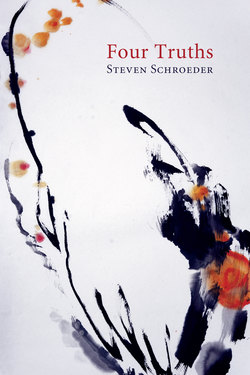Читать книгу Four Truths - Steven Schroeder - Страница 8
На сайте Литреса книга снята с продажи.
one: dukha
Оглавление1. In “the West,” where Greek thinking took root in Judaism and its offspring, Christianity and Islam, the fact of suffering has given rise to a rich tradition of theodicy. Affirming God’s power and God’s goodness together demands reason of suffering. Suffering without reason poses a problem for God, for faith, or for both.
2. Reason has clustered as much around control and knowledge as around power and goodness, and theodicies have often been embodied in languages of limits. That human beings cannot make sense of suffering has been attributed to the fact that human intellect is limited: suffering’s senselessness is a result of the partial perspective of finite beings. From a God’s-eye view, the senselessness of suffering is absorbed into the sense of the whole. God’s limitlessness limits suffering—making it disappear at the limit, passing in time or, through some whole seen, passing into something else.
3. As a language of limits, theodicy turns on finitude and time and is as concerned with sense as with suffering. Suffering that does not pass is punishment: it is incontrovertible evidence that something intrinsic to the sufferer is suffering’s cause. At the limit, there is no innocent suffering, because there can be no suffering without cause.
4. Which makes theodicy, more often than not, a search for some other to blame.
5. In Islam, which is most adamant in its affirmation of God’s power, theodicy simply vanishes into reason: there can be no innocent suffering, because God cannot be in any way associated with evil. The problem, then, is not accounting for innocent suffering but rather discovering why it is not innocent. Suffering must be put on trial and the sufferer convicted. Christianity has sometimes taken a similar turn, but it has also admitted an instance of innocent suffering made necessary (and thus explained) by sin. Judaism has often turned on time and embraced patience, confident enough of the end to wait suffering out.
6. Common to “Western” accounts of suffering is confidence that it dissolves in the power and goodness of God—whether gradually, across time, or all at once, because God’s power is present and absolute in every instant. But what is perhaps less obvious is that this places knowledge against a background of suffering. Because God’s knowledge is not limited, it recognizes that suffering is nothing in itself, only part of a whole that is good. Bearing suffering with patience (submission, as Islam puts it) leads to knowledge that is more like the whole knowledge of God—or subjects us to that knowledge itself. This is not so different from the Greek understanding of passion developed at length in the tradition of tragic drama: what we suffer becomes our teacher, and it is not reality but our vision that changes in the process. Our eyes change in time, so, though nothing changes, time changes everything.
7. But this confidence in vision poses problems, particularly when one claims to see with God’s eyes—waiting in the expectation of an end (now or then) in which one sees with such eyes: the expectation of an end is a narrative temptation endemic to the West. More than once, an end of history has been used to make mass murder make sense.
8. In the garden, the temptation was not the fruit: we have no reason to doubt that it was good to eat. The temptation was to be like gods. And that is why a story that begins with old friends meeting like gods in the court of heaven and ends as though nothing had changed should give us pause. The two were old friends. Neither could be trusted. All that accounts for the suffering of Job is a chance encounter and a series of wagers. As if nothing would change.
9. In the end, the tale survives in the teller alone. We know nothing but the tale in the telling and the trace of the teller.
